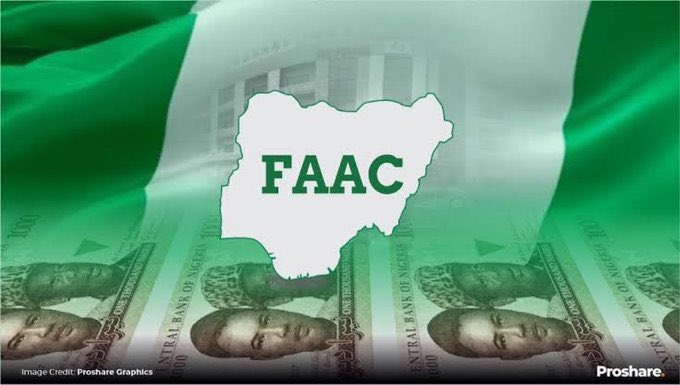Delta State has emerged as Nigeria’s highest earner from the Federation Account Allocation Committee (FAAC) between January and August 2025, receiving a total of ₦423.85 billion, according to new data released by the National Bureau of Statistics (NBS).
The figures, which capture federal disbursements to all 36 states within the eight-month period, show FAAC shared ₦4.587 trillion nationwide, highlighting a persistent disparity between oil-producing and non-oil states.
Rivers State ranked second with ₦388.76 billion, while Akwa Ibom followed closely with ₦348.62 billion.
Together with Delta, the top three states accounted for over ₦1 trillion, a reflection of their 13% derivation entitlement and their pivotal role in Nigeria’s crude oil production.
Bayelsa State placed fourth, receiving ₦306.88 billion, while Lagos—Nigeria’s largest commercial hub and the only non-oil state among the top five—received ₦289.31 billion.
Kano, the country’s most populous state, came sixth with ₦195.12 billion.
At the lower end of the distribution table, Ogun State recorded the smallest allocation at ₦110.35 billion, followed by Ebonyi (₦112.19 billion), Nasarawa (₦113.22 billion), Kogi (₦114.27 billion) and Taraba (₦115.03 billion). The Federal Capital Territory (FCT) received ₦121.85 billion, placing it in the lower half of recipients.
Analysts say the data reinforces long-standing structural imbalances in Nigeria’s fiscal federalism, where oil-rich states benefit from derivation, while many northern and south-eastern states rely heavily on monthly FAAC transfers due to limited economic activity and lower internally generated revenue.
The trend mirrors fiscal patterns from previous years.
In 2024, FAAC disbursements surged above ₦15 trillion, driven by increased oil revenues and improved tax collection. Yet, many states remain unable to independently finance capital projects or sustain regular salary payments without federal support.
The widening gap has reignited debates over restructuring and fiscal autonomy. Several states—particularly in the South-West and parts of the North-West—are pushing for reforms that encourage stronger internal revenue generation and reduce dependence on Abuja.
Meanwhile, oil-producing states continue to demand tighter measures against crude oil theft, arguing that production losses directly affect their monthly allocations and undermine regional development.
Federal authorities have pledged improved surveillance and enhanced pipeline protection to stabilise national revenue inflows.
Read also: ₦1.8 Trillion June Allocation: FG, States Share Revenue



